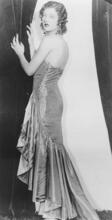Jane Bowles
Born in Manhattan in 1917, Jane Bowles married composer and writer Paul Bowles in 1938. Both bisexual, the couple remained together after their sexual relationship ended, giving one another personal and professional support for over thirty-five years. They became the center of an avant-garde circle in Morocco, where Jane Bowles lived from 1948 until her death. Bowles published her first novel, Two Serious Ladies in 1943, a play, In the Summer House, in 1955, a collection of short stories, Plain Pleasures, in 1966, and her posthumous work, Feminine Wiles, in 1976. Her darkly comic, original work was admired by writers such as Capote, Tennessee Williams, John Ashbery, and Alice B. Toklas, and her outsider identity as a lesbian/bisexual, Jewish, and disabled woman shaped the self-deprecating and unusual tone of her work.
Overview and Early Life
“That genius imp, that laughing, hilarious, tortured elf” was how Truman Capote described the writer Jane Bowles, who, with her composer-writer husband Paul Bowles, became the center of an avant-garde circle in Morocco. Her darkly comic, original work was admired by writers such as Capote, Tennessee Williams, John Ashbery, and Alice B. Toklas.
Bowles lived in Tangier from 1948 until her death, but her origins were less exotic. She was born in Manhattan on February 22, 1917, as Jane Stajer Auer, the only child of Claire Stajer of Hungarian Jewish parents and Sidney Major Auer of German Jewish parents. After attending public high school in New York, she went to private school in Massachusetts, where her fall from a horse broke an already weak right knee, causing permanent lameness. Before she was seventeen, she suffered prolonged physical pain and the unexpected early death of her father. At age forty, she endured a stroke whose effects darkened her remaining sixteen years.
She probably thought of herself as a lesbian before she met (1937) and married (1938) Paul Bowles, a bisexual writer and composer. They remained together after their sexual relationship ended, giving one another personal and professional support for over thirty-five years.
Writing Career and Later Life
Bowles’s only published novel, Two Serious Ladies, appeared in 1943 to mixed reviews. Several short stories were published before her play In the Summer House opened in New York. Included in Best Plays of 1953–1954, it was later twice revived. A collection of her short stories called Plain Pleasures appeared in 1966. The Collected Works were published during her lifetime in 1966 and reissued in 1978 as My Sister’s Hand in Mine. Paul Bowles prepared the posthumous miscellany Feminine Wiles for publication in 1976. One novel, one full-length play, one short puppet play, and fewer than a dozen stories make up the slender corpus that has excited steady and serious critical response.
Bowles’s fictional tone is never dark, although betrayal, sin, madness, and death inhabit her work. Her lucid, spare, rarely figurative style acquires both comic and disturbing reverberations. Her novel is characteristic. In it, “two serious ladies” pursue different unnerving journeys away from traditional women’s lives.
Bowles’s Jewishness was apparent in the Yiddish expressions that peppered her conversation, but beyond this display, she dealt with her heritage obliquely, if at all. Her fictional Spanish characters may represent a displacement of her Jewishness. They are voluble, gesticulating, anything but Anglo-Saxon. In the unfinished story “Andrew,” Irish, Jews, and circus people are described as having “a foreign flavor” that both excites Andrew and makes him feel sick. As Jewish, lame, and lesbian, Bowles was a triple outsider who could be mordantly self-mocking—referring to herself, for example, as “Crippie, the Kike Dyke.” Perhaps her responsiveness to other languages is related to her outsider status; she became fluent in French, Spanish, and Arabic, the languages of the countries she lived in. Although her life touched major historical events, Bowles’s fiction and drama are more attuned to cultural and psychological difference than to historical context or politics. Her stepfather, Julian Fuhs, was a Holocaust survivor. Her membership in the Communist Party was not an uncommon gesture in a period marked by cataclysmic social and political upheavals. However, her deathbed conversion to Catholicism is less credible. Jane Bowles died on May 4, 1973, and is buried in a Catholic cemetery—in an unmarked grave because her husband, unable to believe her conversion, would not allow a cross on it.
Selected Works by Jane Bowles
The Collected Works (1966). Reissued as My Sister’s Hand in Mine (1978).
Feminine Wiles (1976).
In the Summer House. In Best Plays of 1953–1954 (1955).
Out in the World: Selected Letters of Jane Bowles, 1935–1970, edited by Millicent
Dillon (1985, 1990).
Plain Pleasures (1966).
Two Serious Ladies (1943).
Bowles, Paul. Without Stopping (1972).
Dillon, Millicent. A Little Original Sin: The Life and Work of Jane Bowles (1981).
Meyers, Jeffrey. “The Oddest Couple: Paul and Jane Bowles.” University of Michigan Quarterly Review 50:2 (Spring 2011).




